Thai Mango Sticky Rice Recipe (Khao Niao Mamuang)
Thai mango sticky rice recipe, or khao niao mamuang, is hands down THE BEST Thai dessert you’ll ever try. It’s a sweet, irresistible dish, combining the creamy richness of coconut milk with tropical ripe mango. A must-try for anyone craving some fresh fruit and the authentic flavors of Thailand.
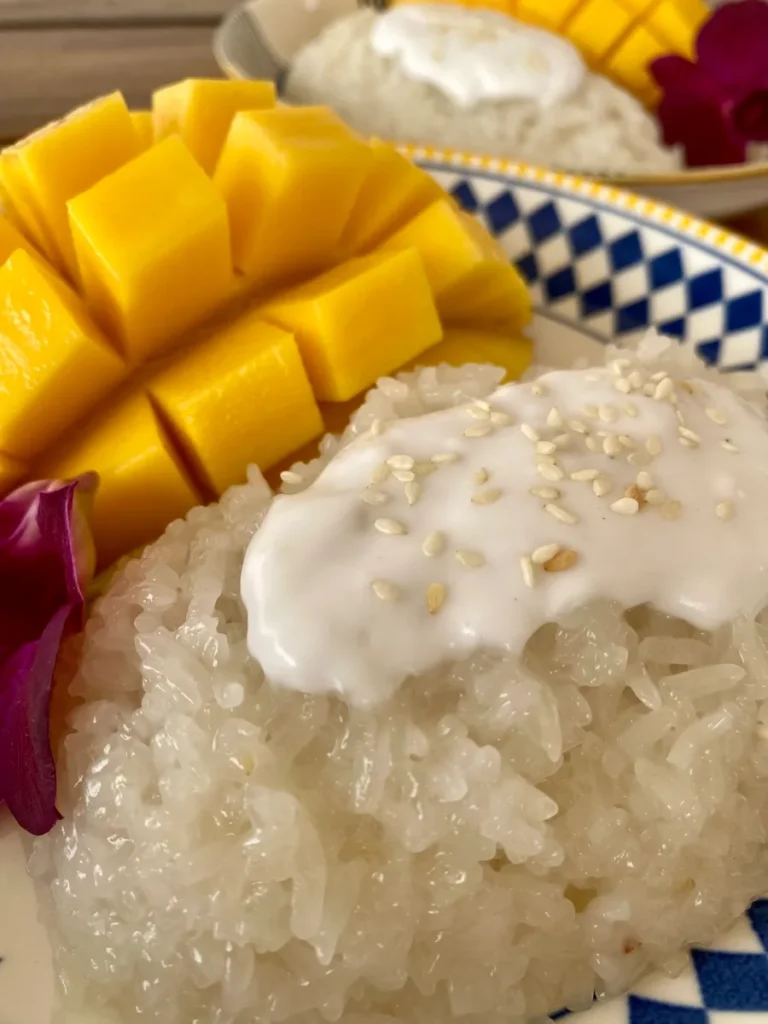
Don’t miss out on my other Thai desserts with coconut milk!
What is mango sticky rice
Mango sticky rice, or khao niao mamuang, is a classic Thai dessert from Thailand. It features sweet glutinous rice paired with ripe mango and drizzled with coconut milk. Its flavors are creamy, sweet, and fruity.
Khao niao mamuang
Khao niao mamuang is pronounced as ‘cow-knee-ow ma-moo-ang’.
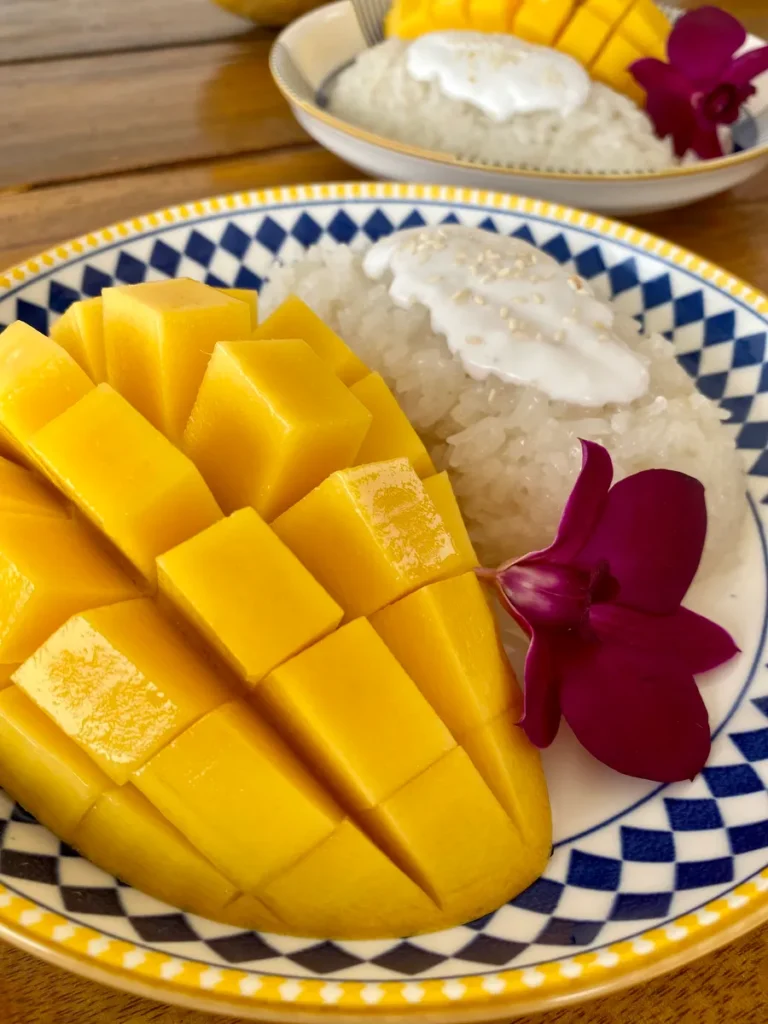
It’s one of my favorite comfort foods ever. Each grain of coconut-infused sticky rice is lovingly drizzled with the creamiest coconut milk. Then, I love adding in mango so ripe that it practically melts in your mouth. YUMMY.
For Thai people, it’s more than just one of the most famous Thai desserts – it’s our go-to for celebrations. You’ll find it everywhere – it’s a staple at every street food market, every wedding, and the dessert everyone wants at Thai restaurants.
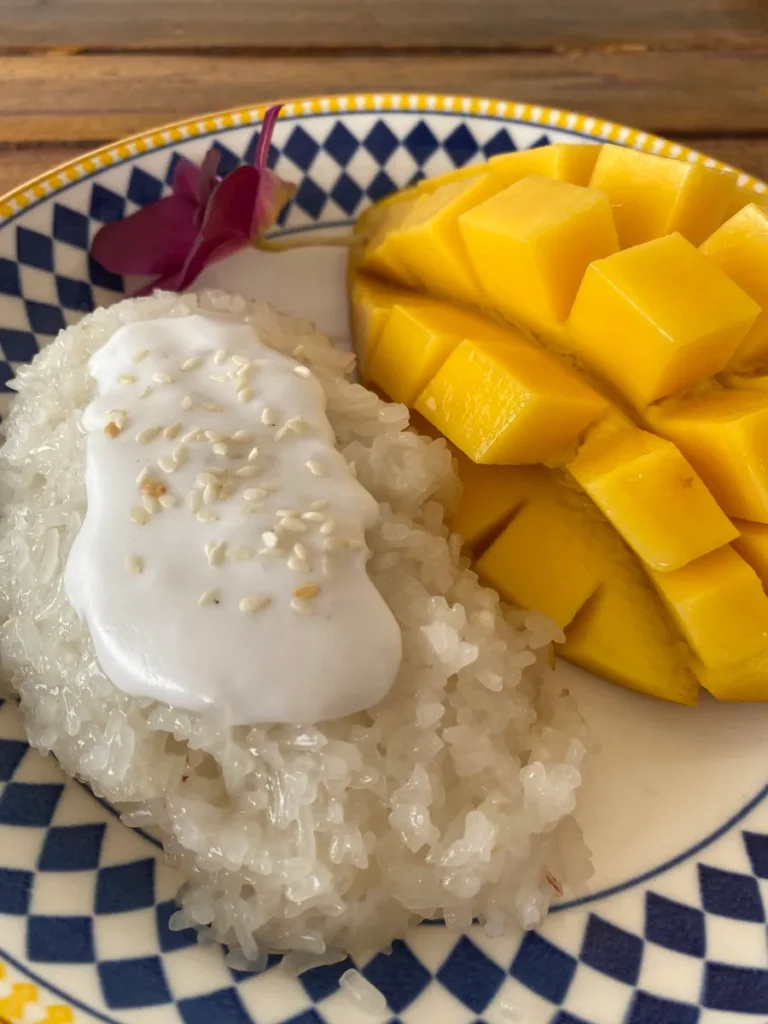
It’s sticky, it’s sweet, and making it isn’t even that hard!
Why try this mango sticky rice dessert
- Gluten-free and vegan-friendly: This mango sticky rice dessert is such a crowd-pleaser that even the kids will ask for seconds.
- Authentic Thai dessert recipe: This recipe for mango sticky rice is authentic and often served at our family get-togethers.
- Not just for desserts: Who said you can’t have this for breakfast or lunch? Definitely not me! It’s perfect any time of day and night.
- Universally loved: Arguably, this is Thailand’s most iconic dessert recipe. I mean, have you ever met anyone who doesn’t love it?
- Health benefits: Mangoes are packed with vitamins and coconut milk adds a healthy dose of good fats.
- Flavorful: It’s refreshing, sweet, creamy, and fruity. This dessert is everything you need and want in one.
Ingredients
Ingredients can be sourced at Asian grocery stores and Asian markets.
The exact measurements are in the recipe card at the end of this post.
Mango and sticky rice ingredients
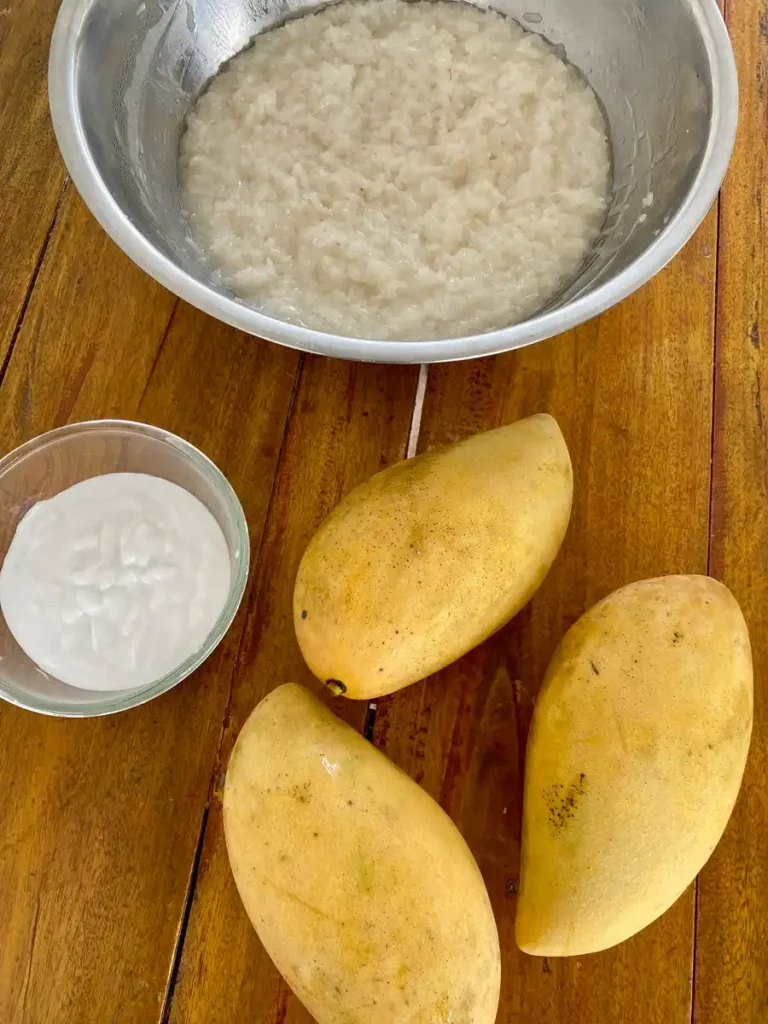
- Ripe mangos – For the best taste, go for Thai honey mangoes. They’re oval-shaped, yellow, and have juicy flesh, which makes them a top pick. If you can’t find them, any ripe mango will do. Just head to your nearest Asian supermarket and pick out a fresh one.
- Sticky rice – Known as glutinous rice or sweet rice, it’s a short-grain that becomes wonderfully sticky when cooked. It’s not boiled like regular rice, it’s steamed in a steaming pot or bamboo steamer. This is what gives this dessert its unique texture, not substitutable for jasmine rice!
- Water – For steaming your glutinous rice into sticky rice.
- Toasted sesame seeds (optional) – Sprinkle on some toasted sesame seeds to add a bit of crunch and nuttiness.
COCONUT SAUCE for sticky rice ingredients

- Coconut milk – Opt for full-fat coconut milk for a rich texture and deep, creamy flavor.
- Sugar – Feel free to adjust the sugar to your liking. I’ve found the perfect balance that works for me, but you might have your own sweet spot.
- Salt – A little salt enhances all the other flavors, bringing out the best in the rice and coconut milk.
- Pandan leaves (optional) – Pandan leaves are often used in Thai desserts for adding a subtle, aromatic fragrance. Totally optional.
Coconut sauce for topping ingredients
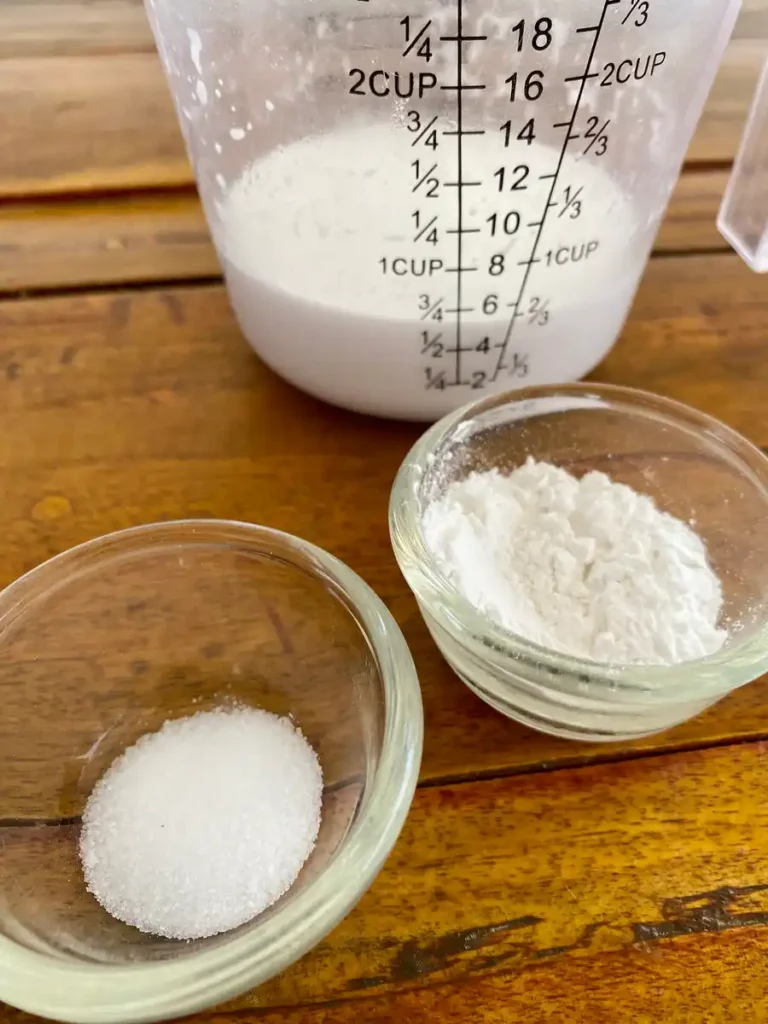
- Coconut milk – Full-fat is a non-negotiable for achieving that creamy texture that’s crucial to mango sticky rice.
- Rice flour – To get the coconut milk into a thick sauce.
- Salt
Cooking instructions
Make sticky rice
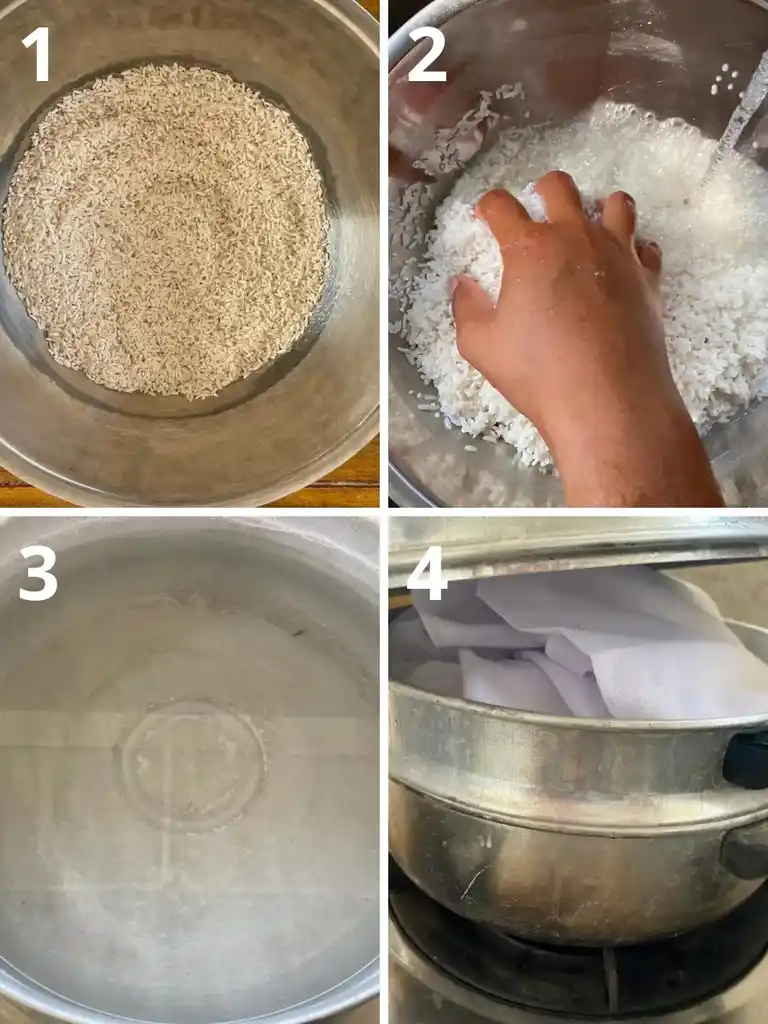
1. Soak the rice: Place your glutinous rice in a large mixing bowl. Cover it with water and let it soak for at least 4 hours, or even better, overnight.
2. Rinse the rice: After soaking, drain the rice and rinse it thoroughly, washing it at least 3 times to remove excess starch.
3. Prepare the steamer: Fill the bottom part of your steamer with water, about halfway full. Bring the water to a boil over medium heat.
4. Steam the Rice: Lay a steaming cloth on the bottom of the steamer tray. Spread the soaked rice evenly on the cloth, and then fold the edges of the cloth over the rice. Once the water is boiling, place the tray on the steamer. Cover with a lid and steam for 20 minutes. For detailed instructions, refer to my how to make Thai sticky rice recipe.
Make coconut sauce for sticky rice
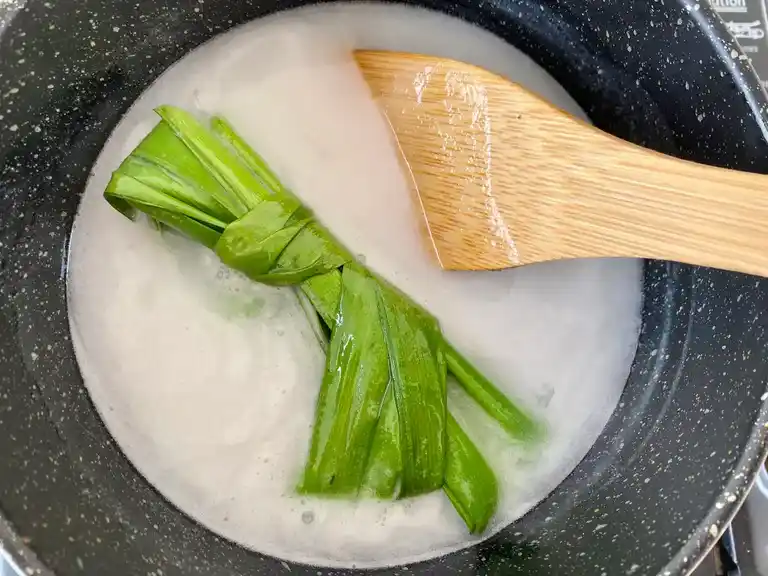
1. Combine ingredients: While the rice is steaming, combine the coconut milk, sugar, salt, and pandan leaves in a pot or saucepan. Cook over medium heat.
2. Cook the sauce: Stir the mixture regularly while cooking. Continue until the sugar has completely dissolved, which should take about 3 minutes. Set this sauce aside until the rice is finished steaming.
Mix sticky rice with sauce
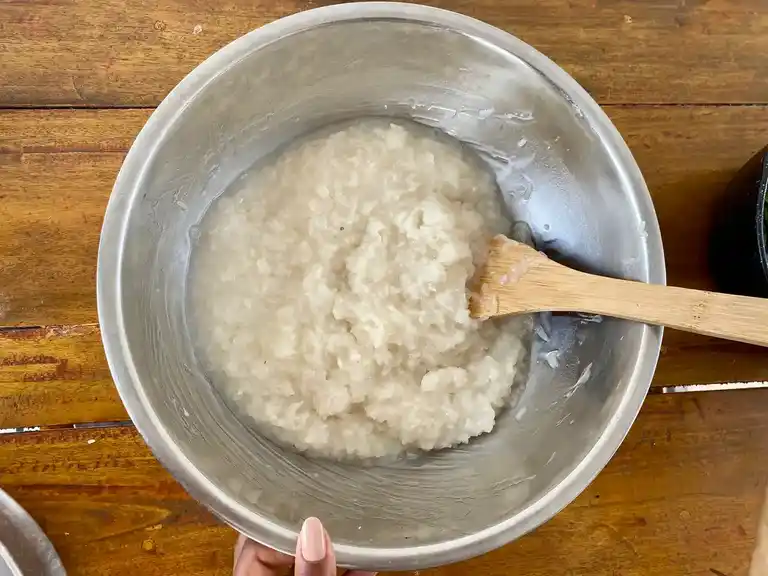
1. Combine rice and sauce: Once the rice is done steaming, immediately transfer it to a mixing bowl. Pour the coconut sauce (from the previous step) over the rice.
2. Mix and soak: Mix the rice and sauce thoroughly. Then cover the bowl and let the rice soak for about 20 minutes.
Make the topping sauce
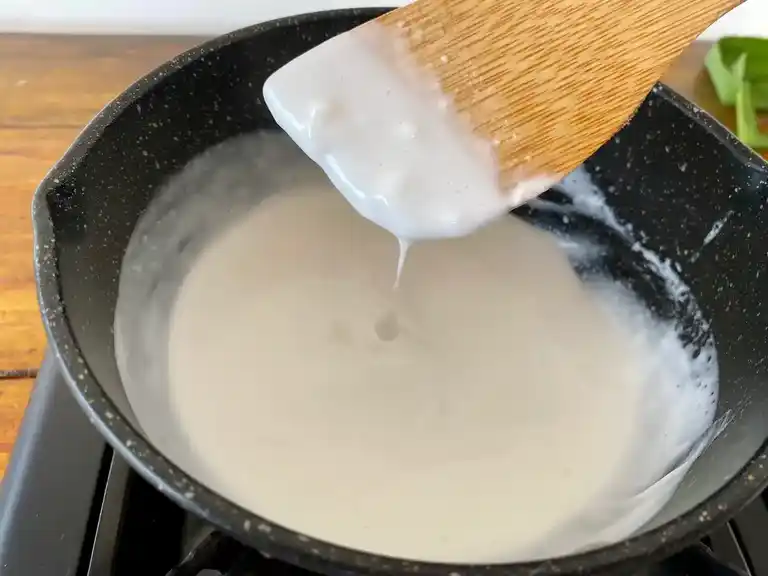
1. Mix topping sauce ingredients: In a separate mixing bowl, thoroughly combine coconut milk, salt, and rice flour.
2. Cook the Sauce: Transfer this mixture to a pot and cook over low heat. Stir continuously until the sauce reaches your desired thickness.
Serve
Scoop the rice onto a serving plate. Arrange the mango around or on top of the rice. Drizzle the sauce over the rice and mango.
Kitchen tools
- Saucepan with wooden spoon for preparing the coconut milk sauce.
- Steaming pot or sticky rice steamer set for making sticky rice.
- Measuring spoons and cups for weighing out the ingredients.
- Cutting board and sharp knife for slicing the mango.
- Mixing bowl for soaking the sticky rice.
How to serve
- Portion the rice: Scoop a generous amount of the coconut-infused sticky rice onto a plate.
- Arrange the mango: Slice the mango into thin slices and arrange them next to the sticky rice.
- Drizzle coconut sauce: Spoon over the thickened sauce generously.
- Garnish (optional): Sprinkle toasted sesame seeds with a few shreds of fresh coconut meat on top.

How to store and reheat
To store mango sticky rice, store the sticky rice and mango slices in separate airtight container in your refrigerator. The coconut sauce should be stored in a separate container as well. The rice and mango keep well for up to 2 days and the coconut sauce should last you for a couple of days.
To reheat mango sticky rice: Reheat the sticky rice in the microwave, covered, with a small sprinkle of water. Do this in bursts of 30 seconds, stirring in between, until it’s warm. The coconut sauce can be reheated in a saucepan over low heat, or microwaved until it’s fluid again.
Frequently asked questions
What kind of rice should I use for mango sticky rice?
Use glutinous rice, also known as sticky rice or sweet rice. This type of rice becomes sticky and chewy when cooked, which is essential for the texture of this dessert.
Can I make this ahead of time?
Yes, you can prepare the sticky rice and coconut sauce in advance. The sticky rice can be kept at room temperature for several hours. For longer storage, store both separately in the refrigerator. Slice the mango before serving.
How many calories in mango sticky rice?
A typical serving of mango sticky rice can range between 300 and 500 calories, depending on the portion size and the amount of coconut milk and sugar used.
Can I use other fruit?
Mango is traditional. I haven’t experimented with other fruits.
Is mango sticky rice gluten-free?
Yes. It uses rice, mango, coconut milk, sugar, and salt, all of which are gluten-free ingredients.
Authentic Thai dessert recipes
- Khanom chan recipe (authentic Thai layer cake)
- Kanom krok recipe (Thai coconut pancakes)
- Bua loy dessert (rice balls in coconut milk)
- Khanom tom recipe (Thai coconut balls)
- Sweet sticky rice with Thai custard
- Thai roti
Loved reading this Thai mango sticky rice recipe? Please make my day by dropping a star rating and/or a comment below! Follow me on Facebook, Instagram, and Pinterest.
Thai Mango Sticky Rice Recipe (Khao Niao Mamuang)
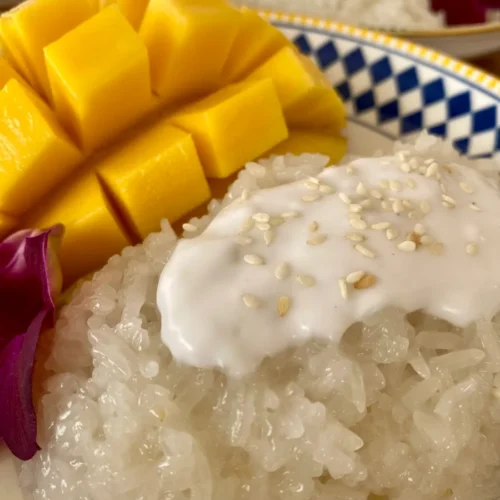
Ingredients
MANGO AND STICKY RICE
- 4 mangos Thai honey mango
- 21 ounces glutinous rice
- 4.5 cups water
- 2 tablespoons toasted sesame seeds garnishing option
COCONUT SAUCE FOR STICKY RICE
- 4/3 cups coconut milk
- 7 ounces white sugar
- 2 pandan leaves
- 0.5 tablespoons salt
COCONUT SAUCE FOR TOPPING
- 3/4 cups coconut milk
- 0.5 teaspoons salt
- 1 tablespoon rice flour
Instructions
MAKE STICKY RICE
- Place your glutinous rice in a large mixing bowl. Cover it with water and let it soak for at least 4 hours, or even better, overnight.
- After soaking, drain the rice and rinse it thoroughly, washing it at least 3 times to remove excess starch.
- Fill the bottom part of your steamer with water, about halfway full. Bring the water to a boil over medium heat.
- Lay a steaming cloth on the bottom of the steamer tray. Spread the soaked rice evenly on the cloth, and then fold the edges of the cloth over the rice. Once the water is boiling, place the tray on the steamer. Cover with a lid and steam for 20 minutes. For detailed instructions, refer to my how to make Thai sticky rice recipe.
MAKE COCONUT SAUCE FOR STICKY RICE
- While the rice is steaming, combine the coconut milk, sugar, salt, and pandan leaves in a pot or saucepan. Cook over medium heat.
- Stir the mixture regularly while cooking. Continue until the sugar has completely dissolved, which should take about 3 minutes. Set this sauce aside until the rice is finished steaming.
MIX STICKY RICE WITH SAUCE
- Once the rice is done steaming, immediately transfer it to a mixing bowl. Pour the coconut sauce (from the previous step) over the rice.
- Mix the rice and sauce thoroughly. Then cover the bowl and let the rice soak for about 20 minutes.
MAKE THE TOPPING SAUCE
- In a separate mixing bowl, thoroughly combine coconut milk, salt, and rice flour.
- Transfer this mixture to a pot and cook over low heat. Stir continuously until the sauce reaches your desired thickness.
SERVE
- Scoop the rice onto a serving plate. Arrange the mango around or on top of the rice. Drizzle the sauce over the rice and mango.
Notes
- Use the nutrition card in this recipe as a guideline.
- The correct way to make sticky rice is to steam it, not boil it. Make sure to soak it in water at least 4 hours before steaming it.
- Choose ripe Thai honey mangos for the best sweet flavor and texture, they should be slightly soft to the touch.
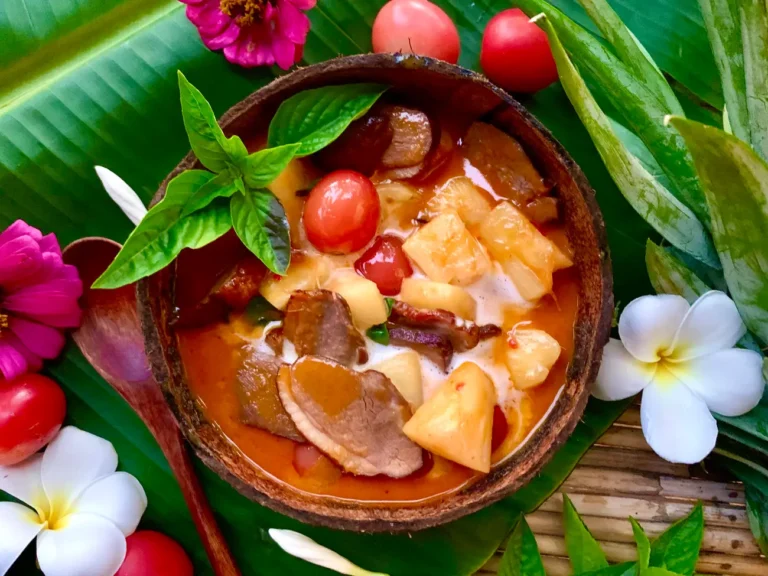
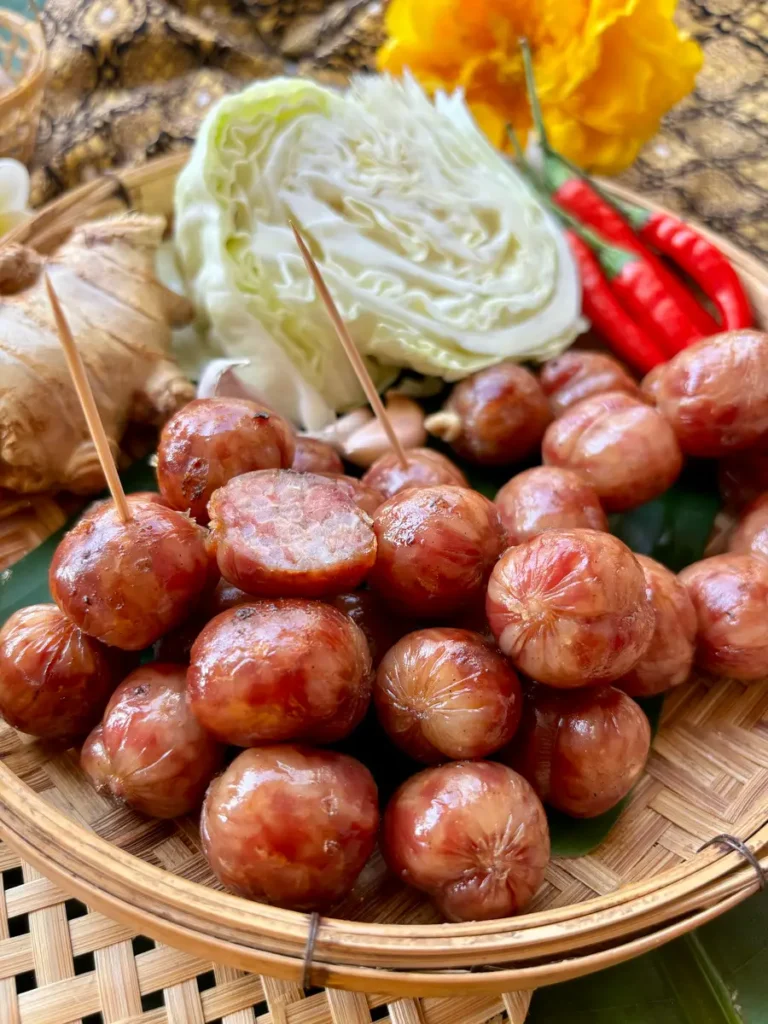
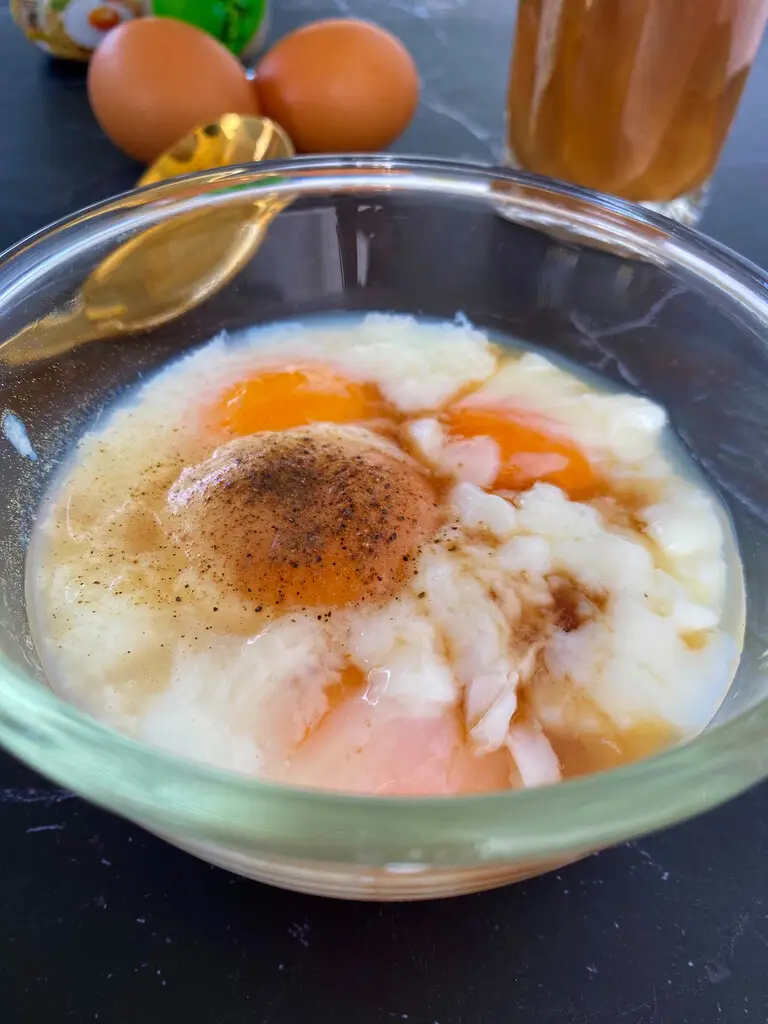
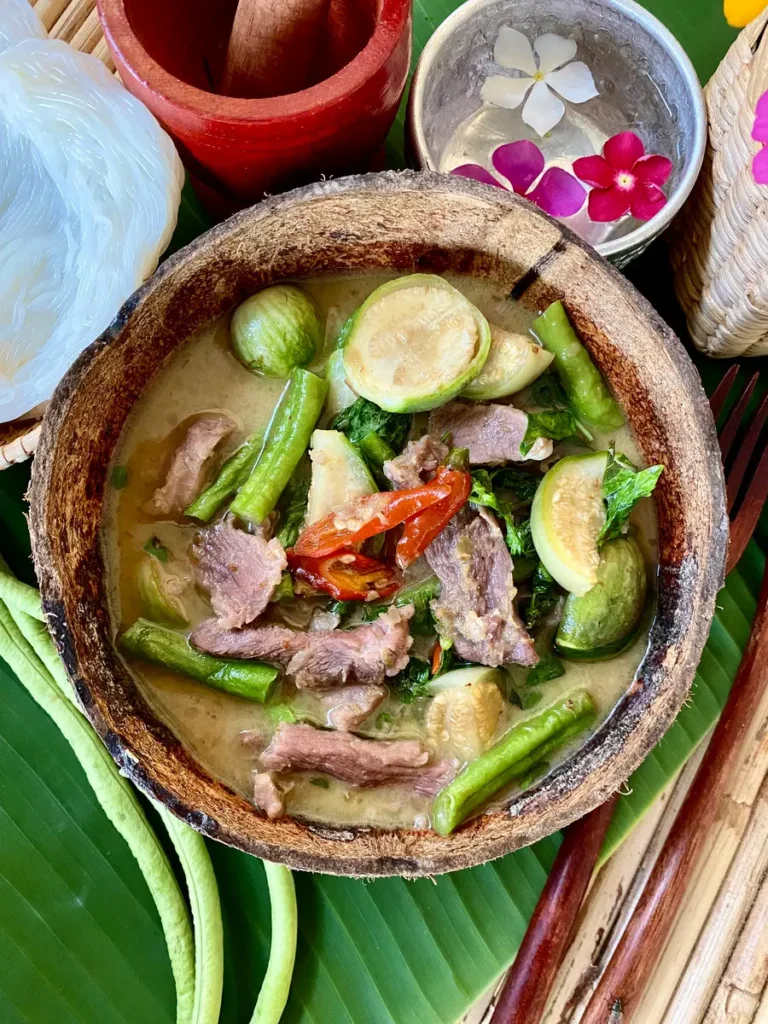
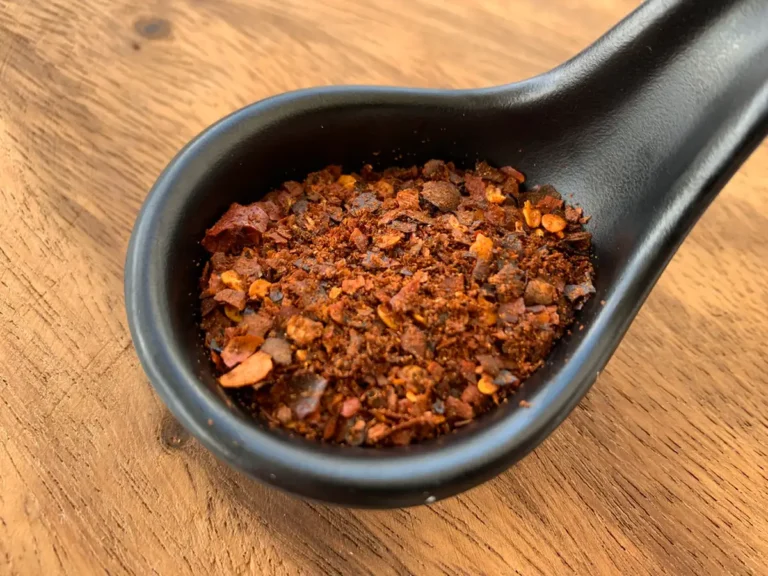
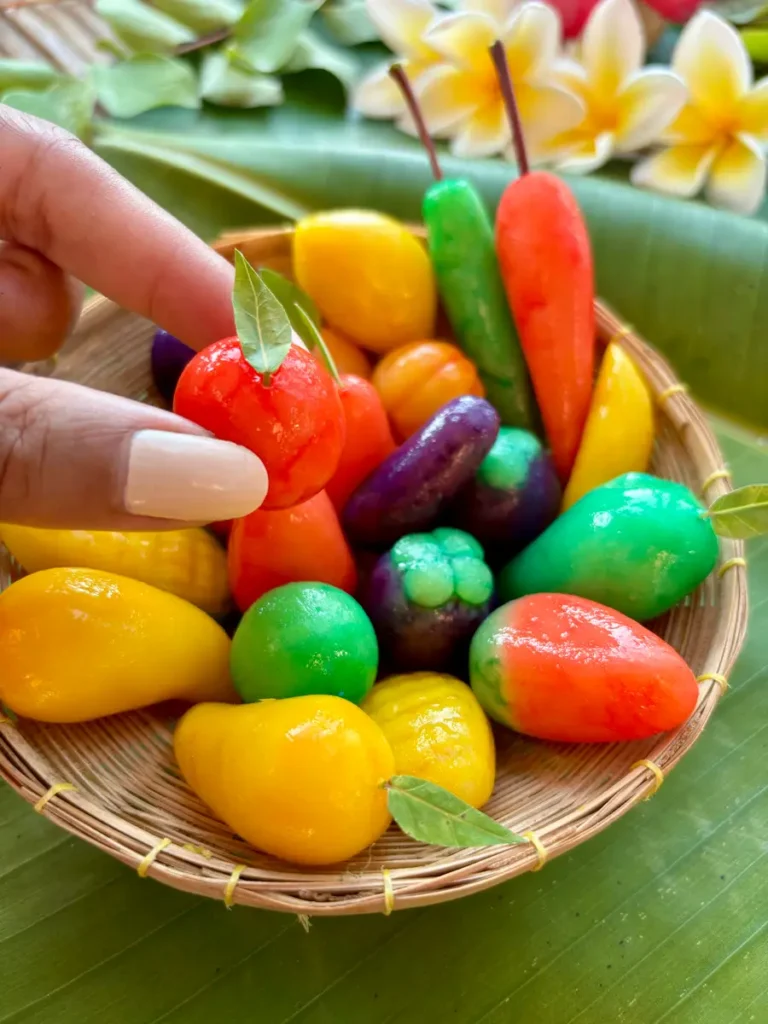
One Comment